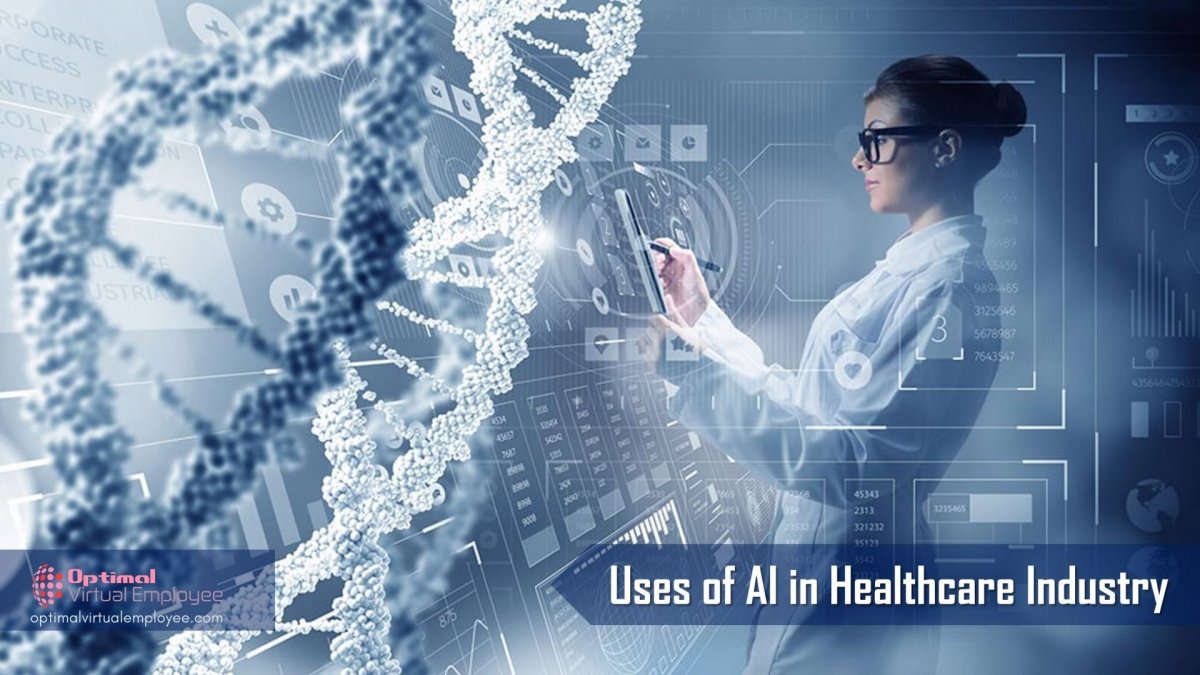Hospitals and health care facilities work day and night 24×7 trying to save people’s lives, curing diseases so that every patient gets access to a quality life. But the massive outburst of diseases, calamities, and lifestyle disorders create pressure on the healthcare infrastructure making it difficult to deliver satisfactory and efficient treatment to every patient. In fact, the growing population is one of the biggest deterrents to quality treatments as there are only a limited number of people involved in the healthcare profession.
Healthcare operations are a unique mix of opportunities and challenges for practitioners and caregivers. Issues like disjointed EHR systems, interoperability challenges weigh down medical organizational processes, high expenditures in terms of procedural length & money can deteriorate the overall patient experience.
Are you a healthcare expert looking to accelerate your operational facilities and patient outcomes with the use of technology? In this article, we show how medical businesses can leverage artificial intelligence technology to improve their processes and deliverables.
Uses of AI in 2021 Healthcare Industry
-
Reducing Healthcare Workload
Workers dedicated to assisting the patients can now work in such a way that they can focus on patient care outcomes rather than the recurrent procedures. AI can help practitioners skim through large volumes of patient records. AI highlights patient data structured as well as unstructured sourced through mining the medical records or by deciphering physician-patient formal interactions.
AI-assisted analysis of this data can help the healthcare sector address many diseases even before they surface. Data mining can aid in diagnosis with the use of clinical data. AI technology can be used also to diagnose patients’ nutritional needs and deficiencies.
-
Better Research and Development
It costs a fortune to develop a new drug from scratch and launch it in the market. AI can help in drug research and discovery and streamline drug production at reduced costs. AI technology is also being used to accomplish reproducible research in bioinformatics, genomics, and life science. Health care workers enjoy access to valuable patient data thanks to artificial intelligence. The research may lead to innovative ideas that help in achieving greater heights for the whole healthcare system.
Overall, it helps in making medical science more productive and establishes achievements.
3.Reliable outcomes of Artificial intelligence
After AI integration, data is collected from every interaction that takes place on the system. The data is stored on the cloud. As the data is recorded based on the interaction with patients and their inputs, it improves the patient care outcomes as the number of interactions increase. AI configures generic healthcare trends on the basis of the data collected and helps new patient cases through this accumulated knowledge.
AI-assisted predictive analytics can healthily support clinical decisions and actions to help medical staff. Functionalities like pattern recognition allow AI-backed practices to identify patients at risk of developing a condition.
-
Improved Patient Experience During Surgeries
Artificial Intelligence learns from the human interactions that help it to grow. Large sets of data drive accurate results resulting in near-perfect outcomes. The end result is a more confident work environment for healthcare workers without any cases of panicking. There is a surging AI revolution in surgery which enables physicians and hospitals to execute promising surgical interventions, AI-assisted platforms are being used to monitor blood in real-time, detect physiological responses to pain, and provide navigation support in surgery. AI assistants also enhance human-like interactions, thereby saving precious time and resources.
-
Early Detection of Disorders
AI-backed medical solutions can detect fatal diseases like cancer, diabetes, and chances of stroke with high accuracy and in the early stages. Massive adoption of consumer wearables and similar medical devices backed by AI-tech often helps healthcare practitioners closely monitor early-stage diseases. The result is successful detection of probable life-threatening episodes at more treatable stages before they impede the normal flow of life.
-
General Health Management
Massive digitization aids individuals in managing their health to near perfection through the generation of useful data. Advancements in AI technology can help leverage this data to predict an individual’s risks for lifestyle diseases. Data mining can also find insights and patterns from large databases produced by health apps and devices. Ai integration in nutrition apps can serve customized recommendations based on a person’s preferences
In the End
The technological advancements in the field of healthcare have contributed towards increasing the life expectancies of the patient. Artificial Intelligence in the global healthcare market will grow from USD 2.1 billion in 2018 to USD 36.1 billion by the year 2025. Only medical businesses that are embracing new technologies can be industry leaders of tomorrow. Innovations in the artificial intelligence space can lead to gains by reducing inefficiencies in the healthcare revenue cycle. Medical businesses must work with artificial intelligence experts to discuss the ways they can integrate the technology into their custom enterprise solutions.
Also Read:
8 Real World Examples of Businesses that Grew to New Heights with AI









